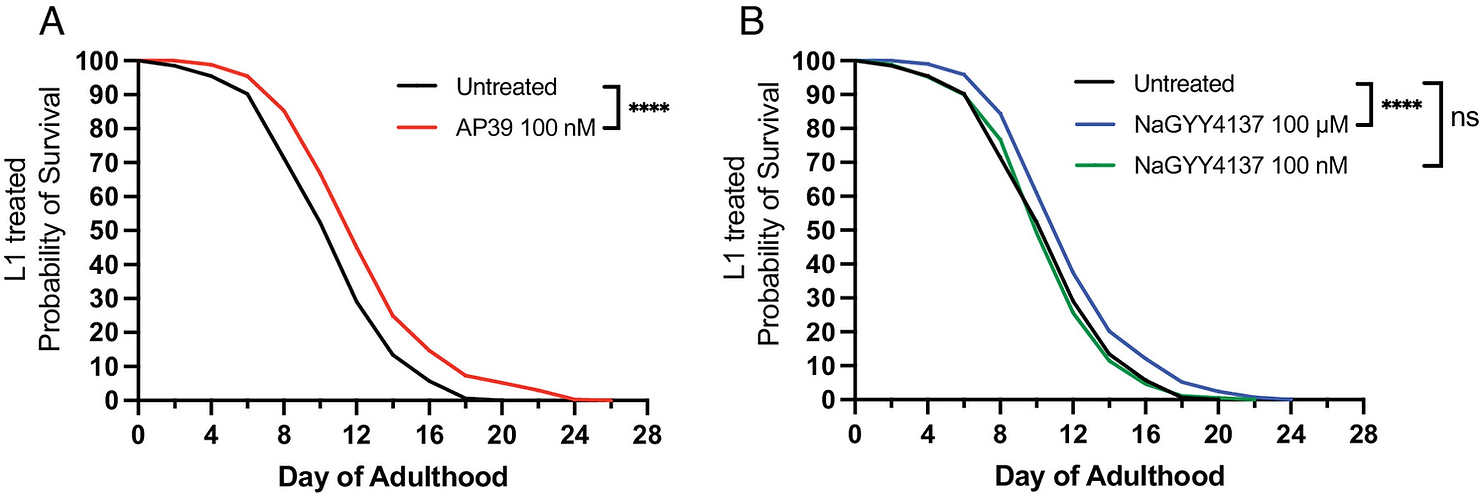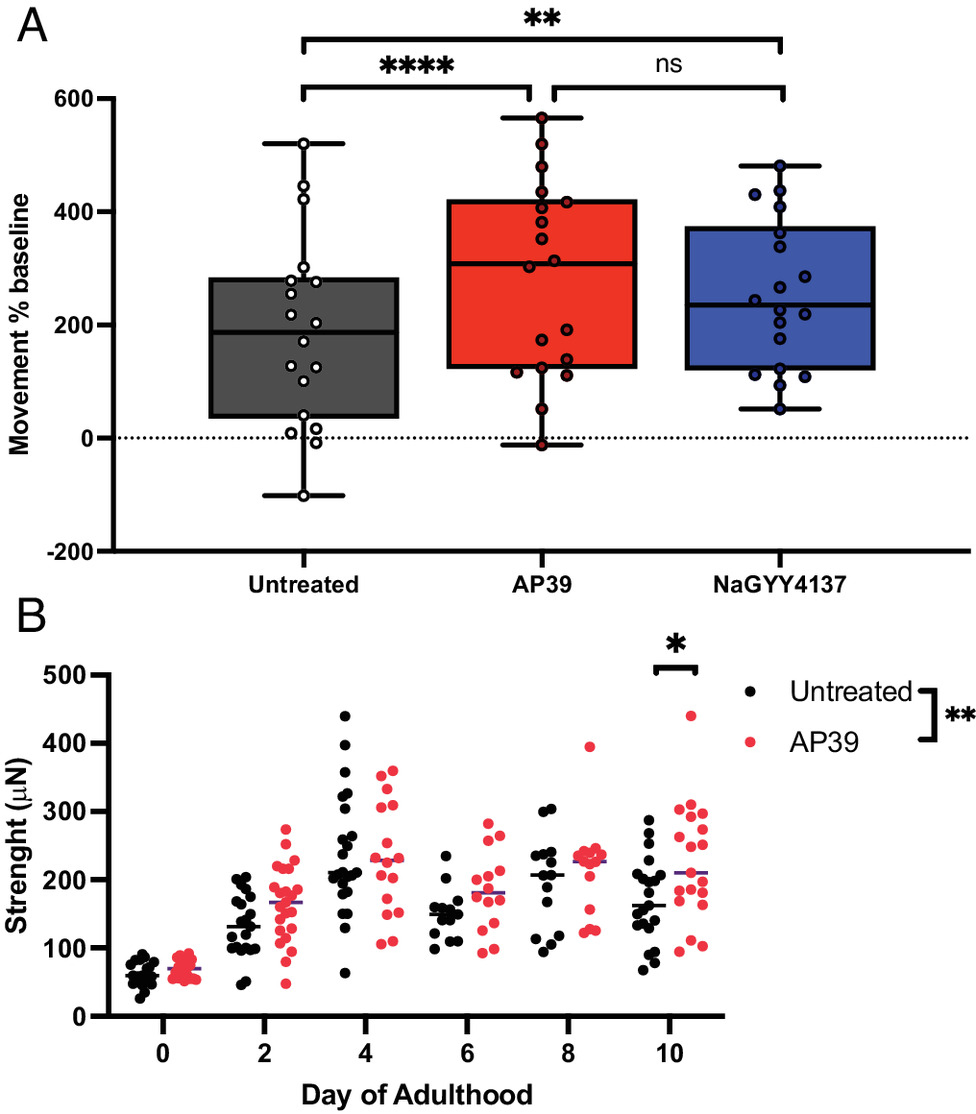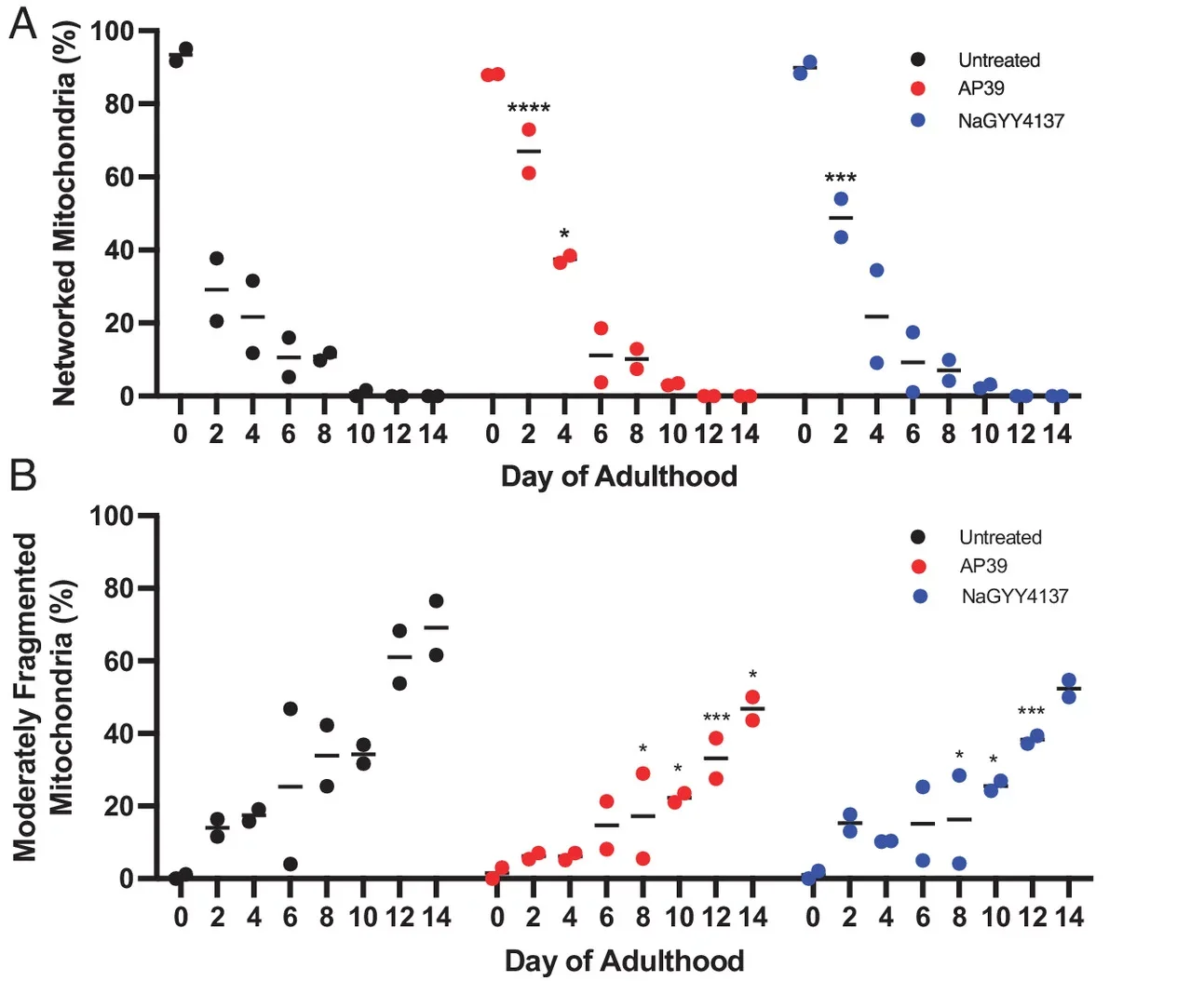Scientists at the University of Exeter have uncovered a surprising potential ally in the quest to enhance human health and extend longevity: hydrogen sulfide (H2S) gas.
The research study, sponsored by the US Army and The United Mitochondrial Disease Foundation, discovered that directing tiny quantities of H2S to particular cell regions in adult worms through an H2S-emitting molecule named AP39, notably enhanced their health and vitality as they grew older.
The study, which appeared in PNAS, suggests that focusing H2S on the cells’ power-producing apparatus (mitochondria) might in the future serve as a treatment for promoting healthy aging.
You wouldn’t think that worms and humans have much in common when it comes to aging. Yet, Professor Tim Etheridge from the University of Exeter believes otherwise: “Worms are a powerful genetic tool to study human health and disease and offer a strong platform to quickly identify new potential therapeutics. Diseases related to aging take a huge toll on society. Our results indicate that H2S, administered to specific parts of the cell in tiny quantities, could one day be used to help people live healthier for longer.”

For this study, adult worms were exposed to AP39, a molecule that delivers H2S directly to the energy-generating machinery of cells, known as mitochondria. The results were astonishing. Not only did the integrity of their mitochondria – the cell’s powerhouse – improve, but the worms also remained active and healthy well into their advanced age.
The health of our mitochondria plays a pivotal role in our overall health. A range of age-associated conditions, from natural aging to diseases such as Parkinson’s, Alzheimer’s, muscular dystrophy, and primary mitochondrial diseases, can be attributed to a loss in mitochondrial function.
Furthermore, in their meticulous analysis, the team discerned a group of proteins that mediate the expression of genes during aging, known as transcription factors. These factors were found to be uniquely influenced by H2S, potentially highlighting new therapeutic avenues, especially for muscle-related conditions.
Related Stories
Professor Etheridge’s team isn’t new to the realm of H2S research. Earlier studies had successfully utilized H2S to target skeletal muscles in worms. However, this is the inaugural instance where such a technique has been applied to natural aging.
The profound implications of their findings haven’t been lost on the University of Exeter. Recognizing the potential, the institution has channeled the foundational technology to MitoRx Therapeutics, its spin-out. This company is now at the forefront, crafting next-gen compounds that might soon be pivotal in treating age-related ailments, including lethal neurodegenerative disorders like Huntington’s disease and debilitating conditions like muscular dystrophy that afflict children.
Co-author Professor Matt Whiteman, also from the University of Exeter, emphasizes that the goal isn’t just about lengthening life. He asserts, “This study is not about extending life – it’s about living healthier lives well into older age. This could have huge benefits to society. We’re excited to see this research move to the next stages over the coming years, and hope it will one day form the basis of new treatments which we have the potential to develop with MitoRx.”

While the study’s primary focus wasn’t lifespan extension, it was observed that worms exposed to H2S lived slightly longer. But more significantly, they lived healthier lives, reflecting youthful physiology even at the end.
Whiteman points out the unique aspect of their research, saying, “We saw a small extension of lifespan in the worms that were targeted with H2S, and what’s unique here is that we extended healthspan – or the time they lived healthy lives. The worms still died, albeit later than normally expected, but they died very active and with young physiology.”
With the promising results stemming from this research, it’s conceivable that in the not-too-distant future, humans might benefit from therapies derived from H2S. The pathway to healthy aging might just be paved by a gas and the determined researchers who believed in its potential.
The detailed study can be found in the paper titled ‘Mitochondrial sulfide promotes lifespan and healthspan through distinct mechanisms in developing versus adult treated Caenorhabditis elegans,’ published in PNAS.

Hydrogen sulfide (H₂S) is a gas often associated with its toxic and foul-smelling nature, reminiscent of rotten eggs. Despite its notoriety as a hazardous substance, recent research has unveiled its potential therapeutic benefits in various medical fields. Here are some key medical benefits of hydrogen sulfide gas:
H₂S acts as a vasodilator, helping to relax blood vessels and improve blood flow. This property is particularly beneficial in managing conditions like hypertension (high blood pressure) and preventing cardiovascular diseases.
Research indicates that H₂S can protect the heart from ischemic injury, where the blood supply to the heart is restricted. It helps in reducing oxidative stress and inflammation, mitigating damage during heart attacks and enhancing recovery.
H₂S exhibits significant anti-inflammatory properties. It can modulate the immune response, reducing inflammation and potentially benefiting conditions such as arthritis, inflammatory bowel disease, and other chronic inflammatory disorders.
Studies suggest that H₂S may offer protective effects against neurodegenerative diseases like Alzheimer’s and Parkinson’s. It aids in reducing oxidative stress and inflammation in the brain, which are key factors in the progression of these diseases.
H₂S has been shown to enhance cognitive function by promoting the health of neurons and improving synaptic activity. This makes it a promising candidate for treating conditions related to cognitive decline.
H₂S plays a role in maintaining mitochondrial function, which is crucial for cellular energy production. By protecting mitochondria from damage, H₂S can help in preventing cellular aging and improving overall cellular health.
H₂S acts as an antioxidant, neutralizing harmful free radicals and reducing oxidative stress. This property is beneficial in protecting tissues from damage and in the treatment of diseases where oxidative stress is a major contributor.
H₂S can promote wound healing by enhancing angiogenesis (the formation of new blood vessels) and reducing inflammation at the wound site. This can accelerate the healing process and improve the recovery outcomes for patients with chronic wounds or burns.
H₂S has shown potential in managing diabetes by improving insulin sensitivity and reducing blood glucose levels. It also helps in mitigating the complications associated with diabetes, such as neuropathy and cardiovascular issues.
Early research suggests that H₂S may have anti-cancer properties. It can induce apoptosis (programmed cell death) in cancer cells and inhibit their proliferation. This makes H₂S a subject of interest in developing new cancer therapies.
Note: Materials provided above by the The Brighter Side of News. Content may be edited for style and length.
Like these kind of feel good stories? Get the Brighter Side of News’ newsletter.
The post Fart gas can help people live longer and healthier lives appeared first on The Brighter Side of News.